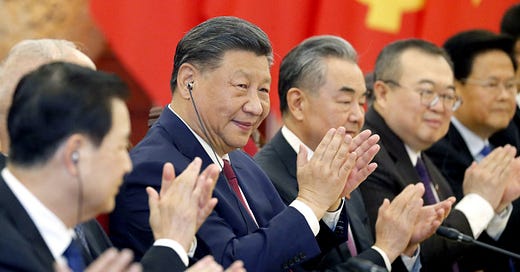China Surpasses US in Diplomatic Influence
China Is the World's No. 1 Diplomatic Power, Ahead of the US, China has biggest diplomatic footprint in the world just ahead of US, new analysis shows
UPDATES: China is the world's largest diplomatic power, with a wider presence across the globe than the United States, according to a new report shared with Newsweek.
New analysis shows that China still has the largest diplomatic footprint across the globe, narrowly pipping the United States.





